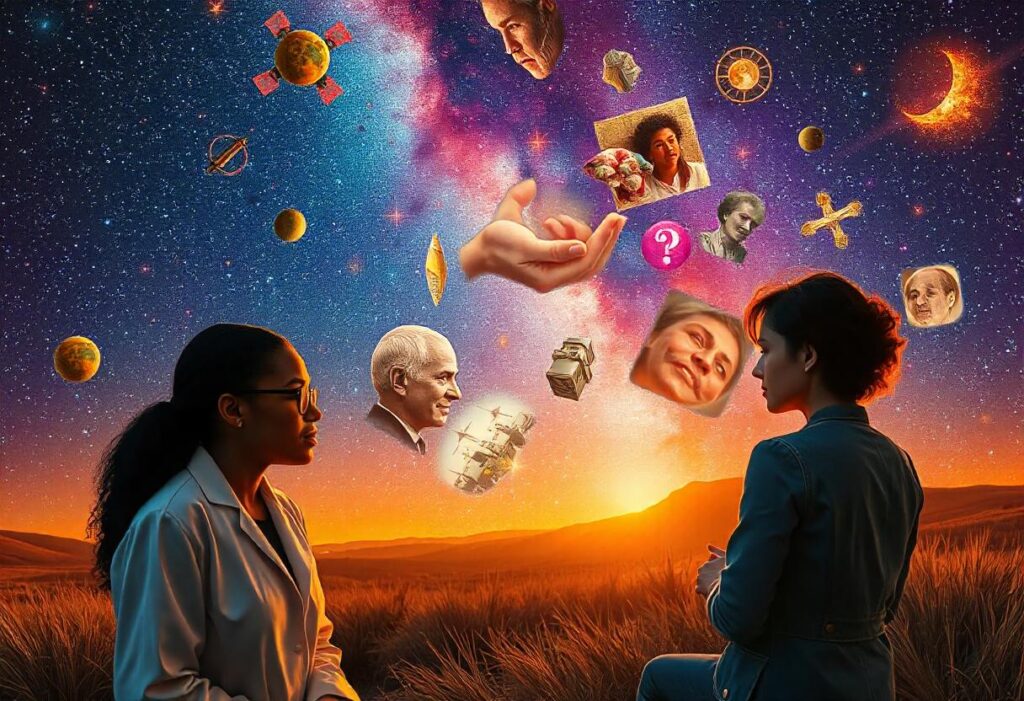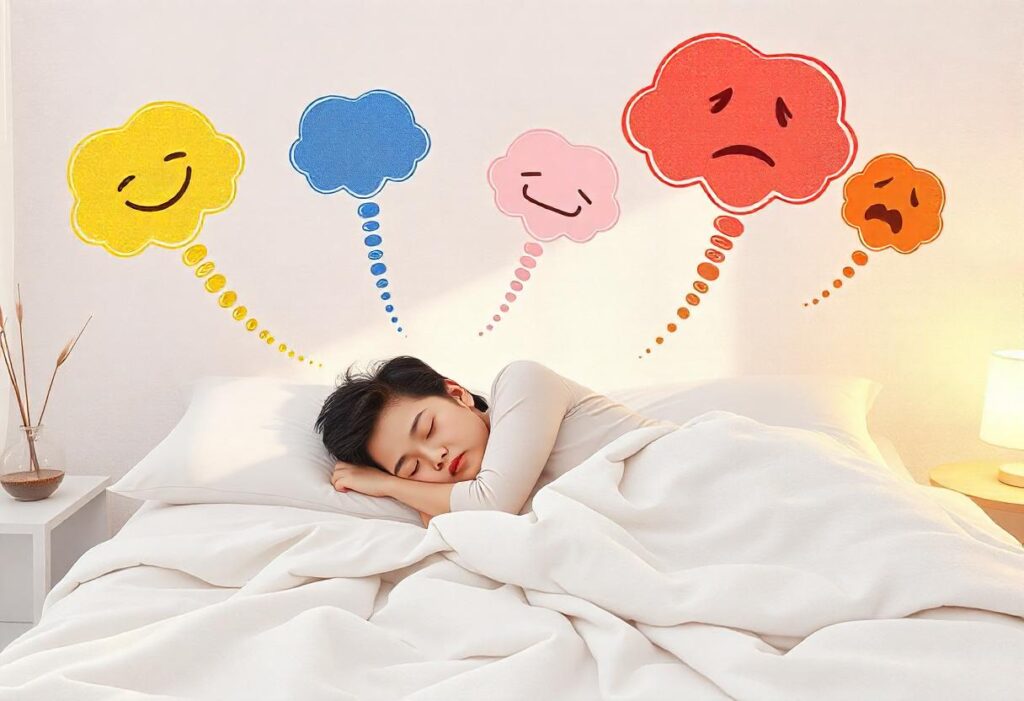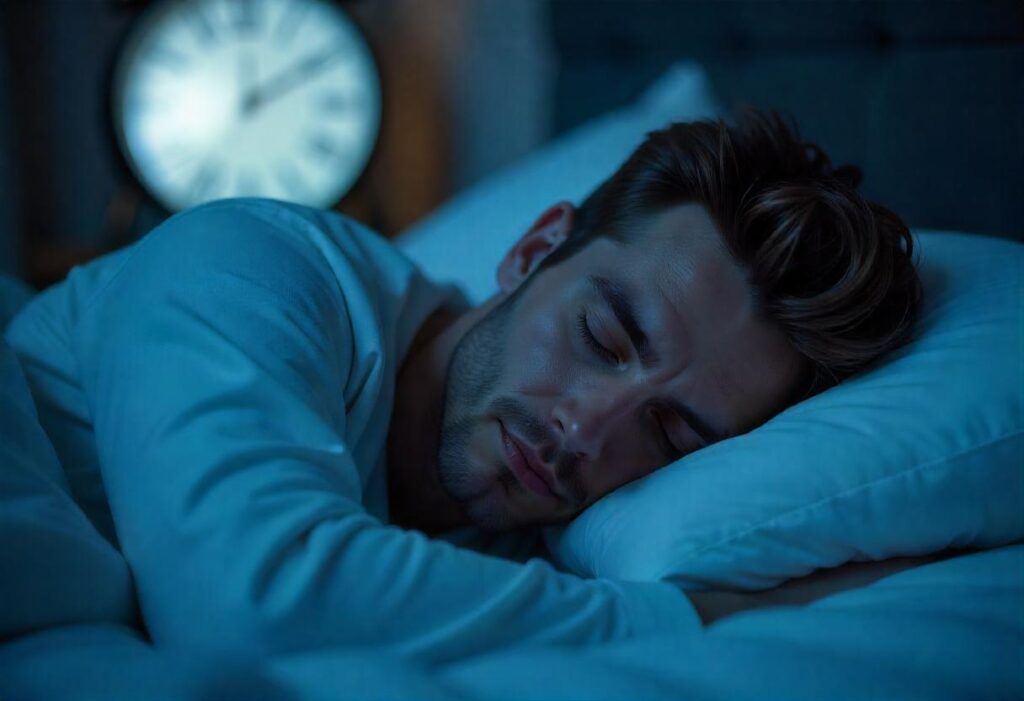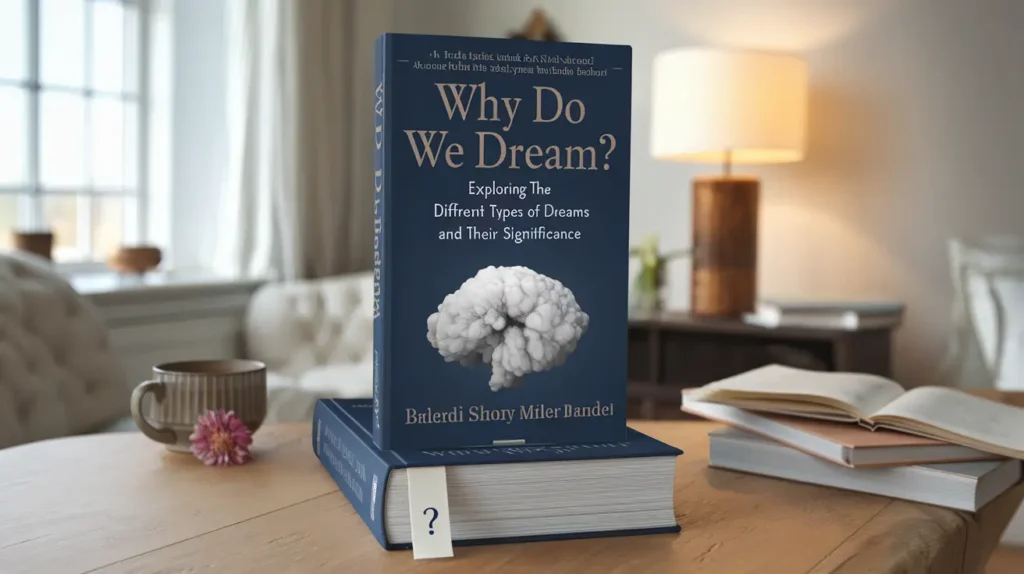Have you ever asked yourself, “Why do we dream?” Dreams have been a subject of attraction for centuries, with many still wondering about their purpose. While we sleep, our mind conjures images, emotions, and experiences, leading many to ask, “Why do we dream when we sleep?” or “Why do we have bad dreams?” In this blog, we’ll dive deep into these questions, exploring the fascinating facts about dreams and shedding light on why they occur. Let’s explore the mystery of why do we dream, why we dream during sleep, and why we sometimes have bad dreams.
1. What Are Dreams?

Dreams are out of control experiences that occur in our minds during certain stages of sleep. They are often vivid and can be full of intense emotions. But why do we dream? This question has Attracted humans for millennia. Whether we are dreaming about people we know, or strange and unknown places, dreaming when we sleep serves various purposes, both psychological and physiological.
2. Why Do We Dream? Understanding the Mechanisms Behind Dreams

The question “Why do we dream?” has Scientists who were captivated, psychologists, and scientists alike. Several theories have been proposed to explain why we dream, and many suggest that dreaming is essential for cognitive and emotional processing. Let’s explore some of these reasons:
- Memory Consolidation: One of the most widely accepted explanations for why do we dream when we sleep is that dreaming helps our brains process memories. Dreams serve as a way for the brain to store and organize the information we acquire throughout the day. This means that dreams play a crucial role in integrating memories while we sleep.
- Emotional Regulation: When we ask, “Why do we dream?”, it’s important to recognize that dreams help us regulate our emotions. Stress, fear, and anxiety often manifest as vivid dreams, offering the mind an outlet for emotional release. So, why do we have bad dreams? In this context, bad dreams can be a sign of our unknowingly trying to manage stress.
- Problem-Solving and Creativity: Another theory of why we dream suggests that dreams are a platform for problem-solving. Often, the solutions to real-life challenges may appear in our dreams. This condition may explain why dreams often seem to offer new perspectives or creative insights.
- Brain Maintenance: Some scientists believe that dreaming serves as a mechanism to “clean up” the brain by removing unnecessary information, ensuring that neural connections stay active and functional. So, why do we dream? It could be part of the brain’s self-maintenance process.
3. The Purpose of Dreams: What Does Dreaming Do for Us?

Dreaming is not just a random occurrence. It serves several key functions for our mental, emotional, and physical well-being. Understanding why do we dream is important for appreciating its role in our lives. Here are the key purposes of dreams:
- Memory and Learning: One of the main reasons we dream is to strengthen our memories and learning processes. This occurs during REM sleep when the brain actively works to store new information. So, the next time you wonder, “Why do we dream when we sleep?”, consider the idea that dreams play a role in memory consolidation.
- Emotional Healing: Dreams can help us process intense emotions, particularly those linked to trauma or anxiety. Why do we have bad dreams? In this case, bad dreams may be a way for our subconscious to address unresolved emotional conflicts.
- Psychological Reflection: Many people find that their dreams reflect their waking life challenges. Dreaming when we sleep can help us analyze unresolved issues, and in some cases, we may wake up with clarity about a situation.
- Cognitive Function: Dreams can contribute to problem-solving and creative thinking. By enabling new connections in the brain, dreams can help us find innovative solutions to problems.
4. Why Do We Have Dreams That Feel Real?

Dreams often feel so vivid that we may question their reality. Have you ever woken up from a dream and felt as though it actually happened? This phenomenon raises the question: “Why do we dream when we sleep?” and more specifically, “Why do we have dreams that feel real?” In this section, we explore the science behind vivid and lucid dreams, shedding light on why they seem so tangible and lifelike.
Vivid Dreams: Why Do They Feel So Real?
Vivid dreams occur when our brains are highly active, particularly during REM sleep. These dreams can feel so real that we may be unable to identify them from our waking life. Here are some reasons why we experience vivid dreams:
- Increased Brain Activity: During REM sleep, the brain becomes highly active, and the areas responsible for emotions and memories are particularly engaged. This heightened activity may lead to the creation of extremely vivid dreams that feel like actual experiences.
- Emotional and Psychological Factors: Vivid dreams are often linked to strong emotions. If you’re experiencing anxiety, excitement, or intense feelings, your dreams may become more vivid and impactful. “Why do we dream?” The brain may use these emotional experiences as material to create vivid scenarios in our dreams.
- Memory Processing: Vivid dreams can also result from the brain’s attempt to process and consolidate memories. The more recent or intense the memory, the more likely it is to appear in a vivid form during sleep.
Lucid Dreams: How Do We Control Our Dreams?
Lucid dreaming is the ability to become aware that you’re dreaming while still in the dream, and sometimes even control the events. People often wonder, “Why do we dream?” and lucid dreaming can be seen as one answer to this question. When you’re conscious during a dream, you might even have the power to influence its course. Here’s how lucid dreaming happens:
- Awareness in Dreams: Lucid dreaming occurs when you realize that the world around you isn’t real, but your mind continues to create the dream as if it is. This heightened self-awareness can happen Naturally, but some individuals practice techniques to become aware of their dreams more consistently.
- Techniques for Lucid Dreaming: Certain practices, such as keeping a dream journal or performing reality checks throughout the day, can help you develop the ability to control your dreams. “Why do we dream when we sleep?” In this case, lucid dreaming allows you to shape and direct your dreams, offering a unique experience.
5. Dreaming During Sleep: The Science Behind REM Sleep

Why do we dream when we sleep? A major factor in why we dream is REM sleep, a crucial phase in the sleep cycle. REM sleep is when the brain is most active, and it plays an essential role in our ability to dream. Here’s how REM sleep relates to dreaming:
- Increased Brain Activity: During REM sleep, the brain becomes highly active. This stage of sleep allows us to experience vivid, sometimes strange dreams, which may be a result of the heightened neural activity in the brain.
- Memory Processing: REM sleep is involved in consolidating memories, organizing thoughts, and processing emotions. This is why dreams during REM sleep are often linked to our daily lives, with dreams reflecting our thoughts, fears, and emotions.
- Muscle Paralysis: To prevent us from physically acting out our dreams, the body enters a state of paralysis during REM sleep. This helps ensure that our dreams remain a mental experience rather than becoming physical actions.
6. Theories on Dreaming: Why Do We Dream?

The question “Why do we dream?” has given rise to several theories. These theories offer different perspectives on the purpose and meaning of dreams:
- Freud’s Theory: Sigmund Freud believed that dreams are a window into our unconscious mind, revealing hidden desires and repressed memories. Freud’s theory suggests that dreaming why do we dream stems from unresolved conflicts and desires that surface in our dreams.
- Activation-Synthesis Theory: This theory posits that dreams are the brain’s attempt to make sense of random neural signals. The brain generates dreams by weaving together these signals into coherent stories. Why do we dream? According to this theory, it is simply the brain trying to make sense of random neural activity.
- Cognitive Theory: This theory suggests that dreams are a continuation of our waking thoughts. When we sleep, the brain processes information from our waking life. Why do we dream? It may be the brain’s way of continuing its thought processes while we rest.
7. How Do Our Emotions Influence Our Dreams?

Emotions play a significant role in shaping the content of our dreams. Whether it’s a vivid dream or a bad dream, our emotions often take center stage:
- Emotional Stress: If you’re experiencing stress, anxiety, or worry, your dreams may reflect these emotions, leading to intense or unpleasant dreams. Why do we have bad dreams? It could be a manifestation of emotional tension.
- Positive Emotions: When you’re happy or relaxed, your dreams may reflect positive and calming scenarios. Your mind processes joyful emotions by creating serene and peaceful dreams.
Unresolved Feelings: Sometimes, unresolved emotions or conflicts in your life can manifest as recurring dreams. Why do we dream repeatedly about a certain event or person? It might be because the brain is trying to resolve an emotional conflict.
8. Why Do We Dream When We Sleep? Understanding Sleep Stages

Why do we dream when we sleep? The process of dreaming occurs primarily during REM sleep, but it is not exclusive to this stage. Here’s a breakdown of the stages of sleep:
- Non-REM Sleep: In this stage, the body and mind are at rest. While dreams can still occur, they tend to be less vivid than those in REM sleep.
- REM Sleep: This is the stage when most dreams happen. The brain is more active during REM sleep, and this phase of sleep is linked to vivid dreams. So, why do we dream during sleep? It’s because of the heightened brain activity that occurs during REM.
Astrology Product: Kubersukh
9. How Can We Control Our Dreams?
Lucid dreaming, or the ability to control your dreams, is a skill that some people develop. If you’re wondering “Why do we dream?” and wish to influence your dreams, here are some ways to practice lucid dreaming:
- Reality Checks: Regularly checking whether you’re awake or dreaming can help you recognize when you’re in a dream.
- Dream Journals: Keeping a journal of your dreams can increase your awareness of your dream patterns, making it easier to recognize when you’re dreaming.

10. Conclusion: The Mystery of Dreams and Their Role in Our Lives
So, why do we dream? While the reasons behind dreaming remain mysterious, the fact that we dream is undeniable. Whether to process emotions, consolidate memories, or offer creative insights, dreaming when we sleep is an essential part of our cognitive and emotional health. Understanding the complex world of dreams helps us appreciate their significance and unlock their potential to improve our lives.


